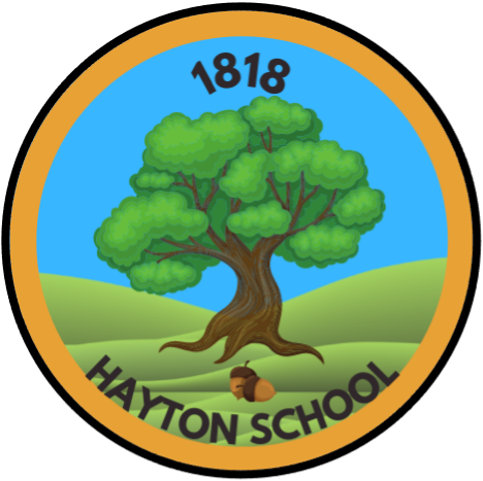Modern Foreign Languages
"Knowledge of languages is the doorway to wisdom." - Roger Bacon
"If you talk to a man in a language he understands, that goes to his head. If you talk to him in his own language, that goes to his heart." - Nelson Mandela
What we believe:
At Hayton C of E Primary School, we know that the study of a modern foreign language enhances children’s literacy, self-confidence and broader cultural understanding. Our ambition to embed language learning within our curriculum is born of the statutory commitment in the National Curriculum to give every child between the ages of 7 and 11 the opportunity to learn a new language. With over 220 million speakers internationally, French is the second most widely learnt language after English. French is also the second most widely taught language after English- the only two languages spoken on every continent.
Our curriculum aims to found progress throughout a child’s school career by developing a secure understanding of grammar, vocabulary and culture at the relevant stage. Insecure, superficial understanding prevents genuine progression: pupils may struggle at key stage transitions, amass damaging misconceptions, or have significant difficulties in understanding higher-order content.
What do we do?
At Hayton C of E Primary School, we aim to instil a love of language learning and an awareness of other cultures. We want pupils to develop the confidence to communicate in French for practical purposes, using both written and spoken French. Through our carefully planned curriculum, we aim to give pupils a foundation for language learning that encourages and enables them to apply their skills to learning further languages, developing a strong understanding of the English language, facilitating future study and opening opportunities to study and work in other countries in the future. We support pupils to meet the National curriculum end of Key stage 2 attainment targets (there are no Key stage 1 attainment targets for Languages).
Knowledge is applied within our skills strands, which also run throughout each unit:
● Language comprehension (Listening and reading)
● Language production (Speaking and writing)
At Hayton C of E Primary School, pupils are given opportunities to communicate for practical purposes around familiar subjects and routines. Our lessons provide balanced opportunities for communication in both spoken and written French. Our learning is based on a spiral curriculum, with key skills and vocabulary revisited repeatedly with increasing complexity, allowing pupils to revise and build on their previous learning. Cross-curricular links are included throughout our French units, allowing children to make connections and apply their language skills to other areas of their learning.
Lessons incorporate a range of teaching strategies from independent tasks, paired and group work including role-play, language games and language detective work. We focus on developing what we term ‘language detective skills’ and developing an understanding of French grammar, and key vocabulary rather than on committing to memory vast amounts of French vocabulary. Pronunciation is emphasised early on using Mouth mechanics videos to support pupils with phoneme pronunciation in French.
How do we know if we have had an impact?
We hope that our pupils will leave school equipped with a range of language-learning skills to enable them to study French, or any other language, with confidence at Key Stage 3.
The expected impact of following the French scheme of work is that children will:
➔ Be able to engage in purposeful dialogue in practical situations (e.g., ordering in a cafe, following directions) and express an opinion. ➔ Make increasingly accurate attempts to read unfamiliar words, phrases, and short texts. ➔ Speak and read aloud with confidence and accuracy in pronunciation. ➔ Demonstrate understanding of spoken language by listening and responding appropriately. ➔ Use a bilingual dictionary to support their language learning. ➔ Be able to identify word classes in a sentence and apply grammatical rules they have learnt. ➔ Have developed an awareness of cognates and near-cognates and be able to use them to tackle unfamiliar words in French, English, and other languages. ➔ Be able to construct short texts on familiar topics. ➔ Meet the end of Key Stage 2 stage expectations outlined in the National curriculum for Languages.
The children will develop a love of learning a foreign language. They will see the benefits from starting a possible life-long 'bi-lingual' journey where they will have extended opportunities and life-chances, as well as a deeper cross-cultural understanding as a result.
Our MFL curriculum is high quality, well thought out and is planned to demonstrate progression. We focus on progression of knowledge and skills and discreet vocabulary progression also form part of the units of work.
We measure the impact of our curriculum through the following methods:
- Observing children speaking and listening in another language
- Marking of written work
- Images and videos of children completing speaking and listening activities
- Interviewing the pupils about their learning
- Annual reporting of standards across the curriculum to parents
- Learning walks

